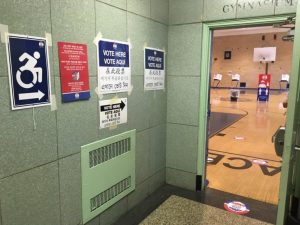
Opinion: Let the J-51 Property Tax Abatement Die, Too
“The governor and New York State Legislature should begin a process of discarding all property tax abatements that primarily serve the interests of landlords and developers (not tenants), and end the patchwork of other taxes required to make up the subsequent lost revenue from them.”
CityViews are readers’ opinions, not those of City Limits. Add your voice today!
The question now arises whether the J-51 property tax abatement should also expire with that of 421a, which expired on June 15, 2022). The inequity of 421a goes without question, yet the inequity of J-51 is obscure. In this report, this obscurity is lifted sufficiently to allow legislators to comfortably allow J-51 to also expire on June 30, 2022. Touting 421a and J-51 as affordable housing’s only game in town is a flawed idea, as other communities demonstrate.
J-51 taxation abatements began in post-war 1955 so that affordable rental housing may have hot water plumbing; afterward it creeped to abate taxes on all building renovations, valued at 8.33 to 12.5 percent of renovation cost every year for 20 years and up to 34 years of no-increase-in-property-taxes, and (for tenants) stabilized rents while the J-51 abatements are in place.
What’s the problem with that? Some think we all must beat the tax monster with a stick, so let’s shout hooray for those who strike a blow! This misguided view ignores the fact that New York City pays its bills with collected revenue, so a loss (i.e., foregone taxes through these abatements) requires an increase for everyone else.
In 1984, it was estimated New York City lost $2 billion over the life of all J-51 abatements in place at the time and the beneficiaries were primarily landlords and developers in Manhattan’s wealthier neighborhoods; hardly equitable (more recent estimates of costs could not be found, but given 38 years of creep opportunity, the amount is likely to rival the $1.8 billion/year lost with 421a.
Why are New Yorkers allowing this to happen to them? Is it to get permanent affordable housing, rental or otherwise? If its permanency, tax abatements are not the answer, as the abatements all have time limits, and stabilized rents only last for the life of the J-51 abatement periods.
There’s a better way. Consensus among affordable housing advocates is that Community Land Trusts (CLTs) uniquely offer permanency, and do so because tenants avoid taking out mortgages for the trust’s land value; they only finance the building’s value and upon sale, they only sell a share of the building value—a tradeoff to secure permanent affordability. Over the years we’ve seen waves of attempts by landlords and developers to game J-51 to push tenants out of their stabilized units, yet they push these tenants to the foreground in J-51 advocacy while stepping back to hide their wealth-generating schemes.
New York City should revisit the hugely successful tax reform advocated by Lawson Purdy (president of the NYC Department on Taxes and Assessments) and Gov. Al Smith that eliminated the tax on building value, thereby making the property tax a land value tax. The result was a building boom in the 1920s that allowed New Yorkers to weather the approaching Depression of the 1930s.
In tandem with Congressional legislators, we should enact 100 percent federal income tax deductibility on all state and local taxes (including taxes on land value, not limited to $10,000) to diminish the inequity of taxing away labor’s wages.
The governor and New York State Legislature should begin a process of discarding all property tax abatements that primarily serve the interests of landlords and developers (not tenants), and end the patchwork of other taxes required to make up the subsequent lost revenue from them. Go back to Purdy’s simple but effective removal of property taxes from buildings, making NYC once again governed by the equitable system of land value taxation–what economists have judged to be the most equitable tax.
Marty Rowland is a social justice lecturer and progressive advocate of affordable housing
The post Opinion: Let the J-51 Property Tax Abatement Die, Too appeared first on City Limits.


